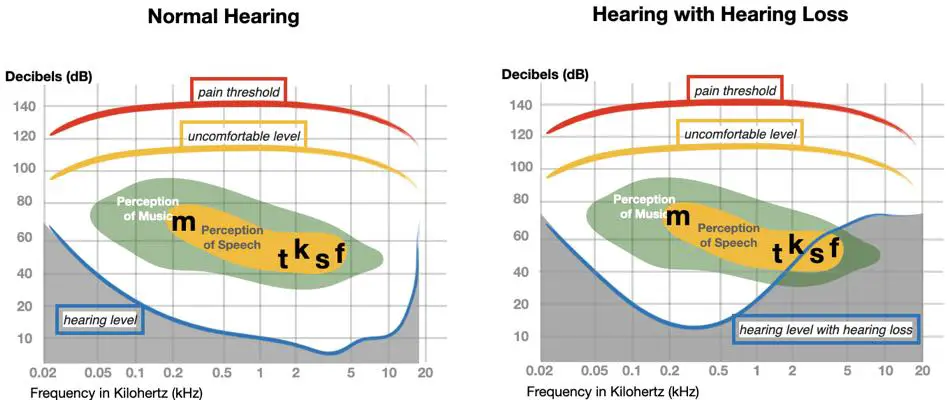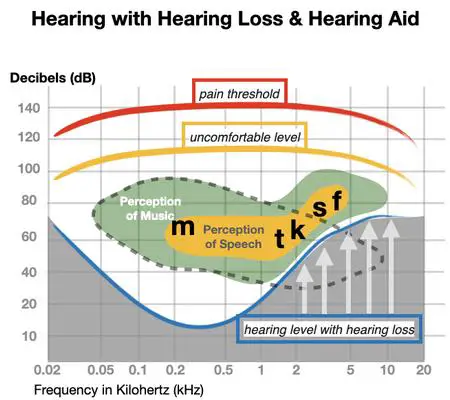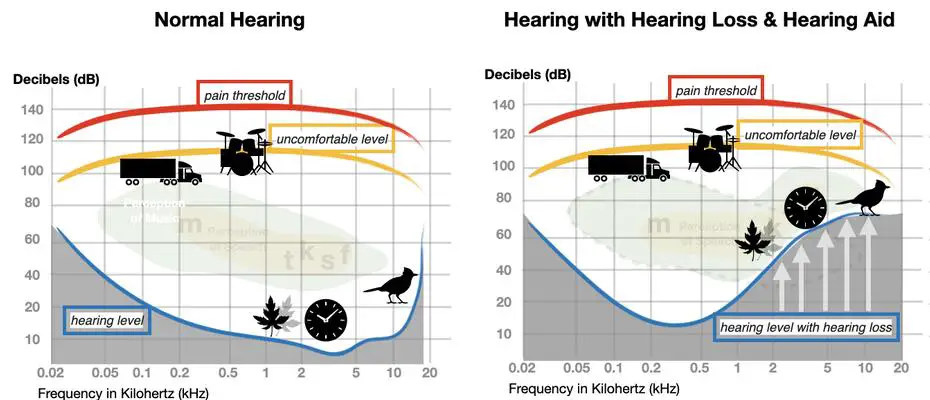Hearing aids alter the lives of people with hearing loss for the better. But there are some distinct differences between natural hearing and hearing with a hearing aid. Here in this article those differences are discussed.
Oftentimes when people with a hearing loss try hearing aids for the first time they experience a clearer environment but also the limitations of those digital devices. Those limitations stem from the hearing aid and also the limited capabilities of the ears to perceive sounds.
This leads to situations like the following. Sounds oftentimes seem to be unnecessary loud or dominant. Its things like the rustling of paper or the flushing of a toilet which seem to be way louder than they were in the memories of the wearer before the hearing loss.
First when I talk about hearing with hearing aids compared to natural hearing we discuss the limitations of loudspeakers of hearing aids compared to natural hearing.
How a Hearing Aid Sounds Compared to Natural Hearing
Hearing aids nowadays can play sounds from 200Hz up to 8-10kHz. But a person without a hearing loss can hear sounds from as low as 20Hz up to 16-20kHz. While most of the sounds of speech are covered in the frequency bandwidth modern hearing aids provide some information may not be perceived optimally.
Because in the high frequencies (8kHz and beyond) the loudspeaker of hearing aids will show their limitations. It is simply put not capable to produce sound in the frequency range of 16kHz. In the picture below you can see what a person with hearing loss hears compared to what a person with hearing aids hears.

The devices are great these days and they evolve with every year. But the limitations become very clear by looking at the image above. A hearing aid will not sound as you heard before the hearing loss. First because of the loudspeakers used in hearing aids and second because you do not remember how things sounded a few years ago.
Studies show humans are bad at remembering how things sounded. And by the past, I mean less than 60 seconds ago. A study by Amy Poremba showed a significant decrease in auditory memory after 32 seconds. Add a hearing loss which is probably present for years and then you will be asked by your audiologist how things sound to you with hearing aids in your ears for the first time.
Oftentimes first-time wearers of hearing aids think the fitting must be bad because they perceive things a lot louder than they are used to. But they hear the environment with the hearing loss which makes a lot of things appear quieter than they actually are. Or some sounds may not be hearable at all.

Here in the image above you can see the difference between natural hearing and someone with a hearing loss but without hearing aids. When you look at the Y-Axis the unit there is decibels. The higher the number the louder the sound. On the X-Axis you can see the frequency in kHz. The higher the frequency the higher pitched the frequency sounds. So when you compare normal hearing from the left side you can see a certain hearing level. Below this level sounds can not be perceived.
When you look at the right side a part of the orange area with the tag perception of speech is below this threshold of the hearing level. This means a person with this particular hearing loss can not hear a part of the sounds that appear around him or her.
Here the hearing aids come into play. They amplify the area which we saw before below the hearing level. With the correct amplification, the parts which were not hearable before gets now amplified past the threshold of the hearing level.

Now everything is hearable back again. The problem has been solved. But with this new solution sounds that were familiar before, that sounded quiet are now amplified a lot so much they get a lot closer to the next threshold. The uncomfortable level. When things start to get too loud.
This is the threshold you find here. The dilemma is often wearers of hearing aids want the voice of others to be clearer but not louder. But as you can see in the image above clarity of speech in combination with a hearing loss has something to do with the correct loudness. A less loud adjustment would bring the area where the s and f are located back below the hearing level. So the person would hear less clear.
In contrast, more amplification brings the sounds closer to the uncomfortable level. This does not sound natural. Especially not when the person with a hearing loss delayed treatment for a decade. But most people are able to accept more amplification after a thorough explanation. But there is also the environment with a lot of noise. Some of those sounds are quiet and some are very loud for example when a truck drives near you.

The good thing about hearing aids is that they amplify very loud sounds very little or not at all, but soft sounds very strongly. You can see this in the example of the image above. A person with normal hearing as well as with hearing aids would say a truck is uncomfortable loud. But now pay attention to both images above. On the right side the chirp of a bird is shown. Hearing a bird naturally without a hearing loss is in most cases not loud. The brain recognizes the chirp but it can filter it out easily and concentrate on a conversation.
Now in contrast people with hearing loss are less capable of cutting through such noise and concentrate on a conversation. And with the hearing aids on as you can see above the chirp of a bird will be perceived as quite loud. Because the area where a person with hearing aids starts to hear to the threshold of uncomfortable loudness is a lot smaller compared to a person with natural hearing.
Your brain can get used to the loudness when the hearing aids get worn regularly. In addition to the filter of your brain cutting through noise modern hearing aids also have noise reduction on board. But noise reduction does not mean the noise like a chirp of a bird is not present at all it is just slightly less dominant.
This sums it up why you hear different with hearing aids compared to natural hearing. Obviously your experience is dependent on your hearing loss and your ability to adopt to the new hearing experience.
I wish you a great day.
